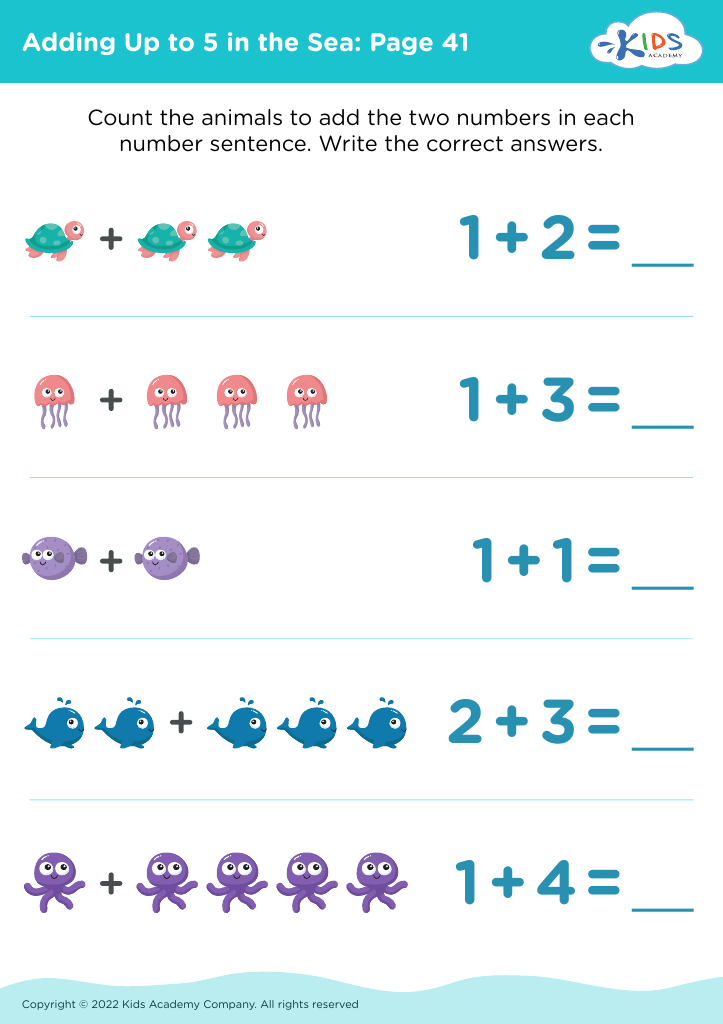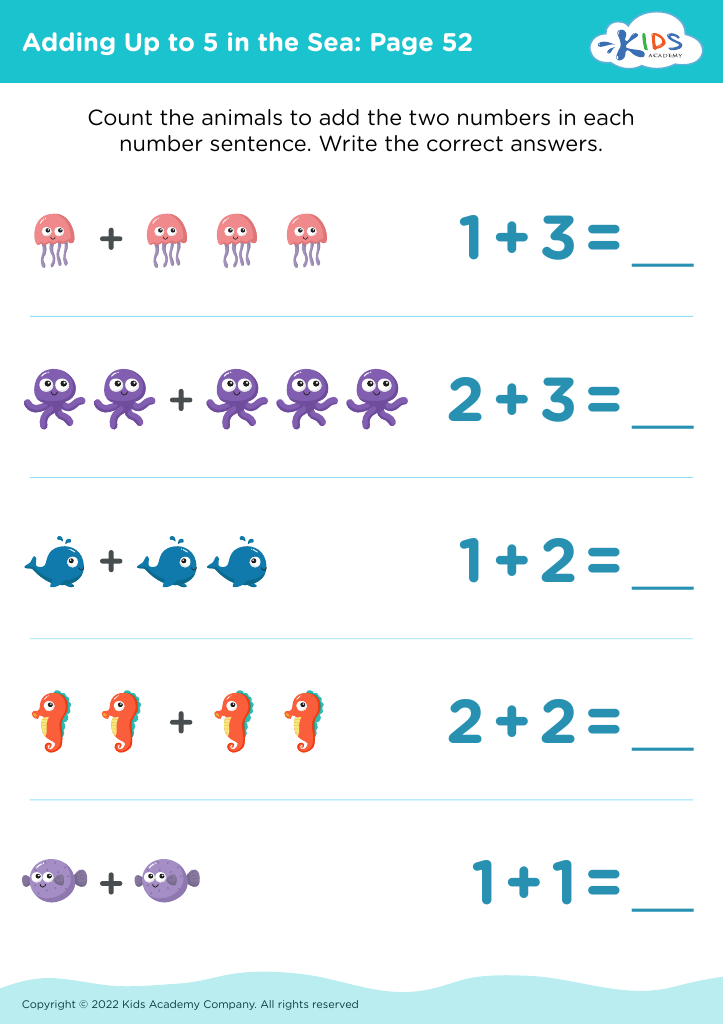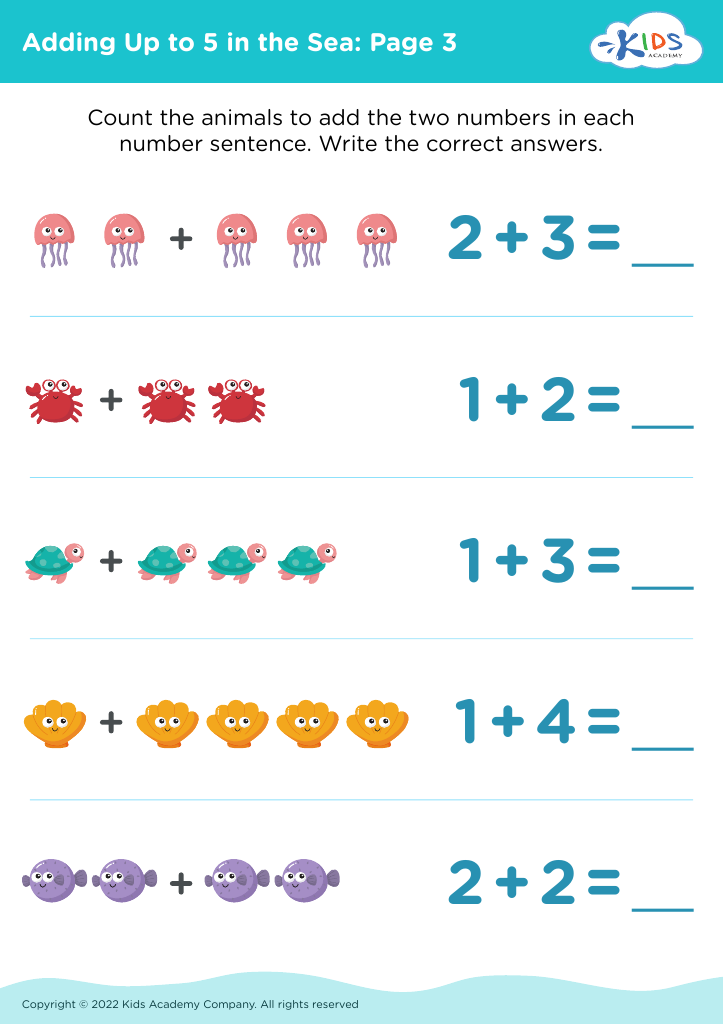Underwater animal identification Math Worksheets for Ages 3-7
3 filtered results
-
From - To
Explore our engaging "Underwater Animal Identification Math Worksheets" designed specifically for children aged 3-7! These fun, interactive worksheets combine math skills with the exciting world of underwater creatures, making learning enjoyable and effective. Your little ones will enhance their counting, addition, and subtraction skills while identifying colorful sea animals. Perfect for preschool and early grade teachers, these worksheets foster cognitive development and promote a love for mathematics through vivid illustrations and hands-on activities. Dive into the ocean of learning and inspire curiosity about the marine life as children solve problems in a playful, educational environment. Start their aquatic adventure today!
Underwater animal identification math for ages 3-7 presents a unique and engaging way for young learners to explore mathematics while fostering a connection with marine life. Parents and teachers should care about this approach for several reasons.
Firstly, it promotes a fun and interactive learning experience. By using underwater animals, children can relate math concepts to fascinating creatures, enhancing their enthusiasm for both math and science. This method supports the development of early numeracy skills, such as counting, sorting, and classifying, which are foundational for later mathematical understanding.
Secondly, it encourages interdisciplinary learning. Integrating math with biology not only builds mathematical skills but also nurtures curiosity about the natural world, promoting environmental awareness from a young age. Understanding marine ecosystems can instill a sense of responsibility toward conservation efforts.
Moreover, this approach also supports critical thinking and problem-solving skills. Children learn to identify patterns, make comparisons, and draw conclusions based on observational data, ideal for cognitive development at this age.
Ultimately, engaging children in underwater animal identification math helps lay the groundwork for lifelong learning, encompassing scientific inquiry and mathematical proficiency, essential skills in today's interconnected world. This nurturing of curiosity and knowledge benefits both individual growth and community awareness.























